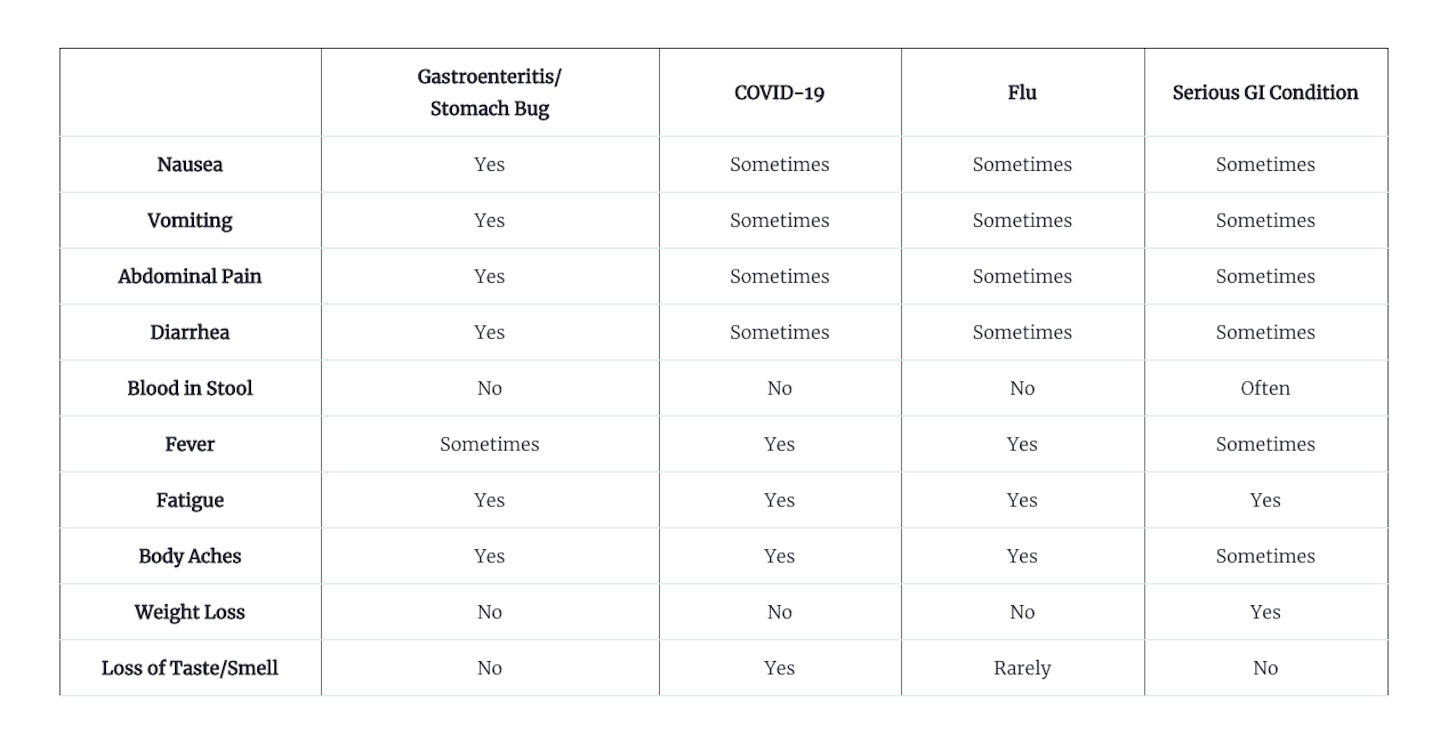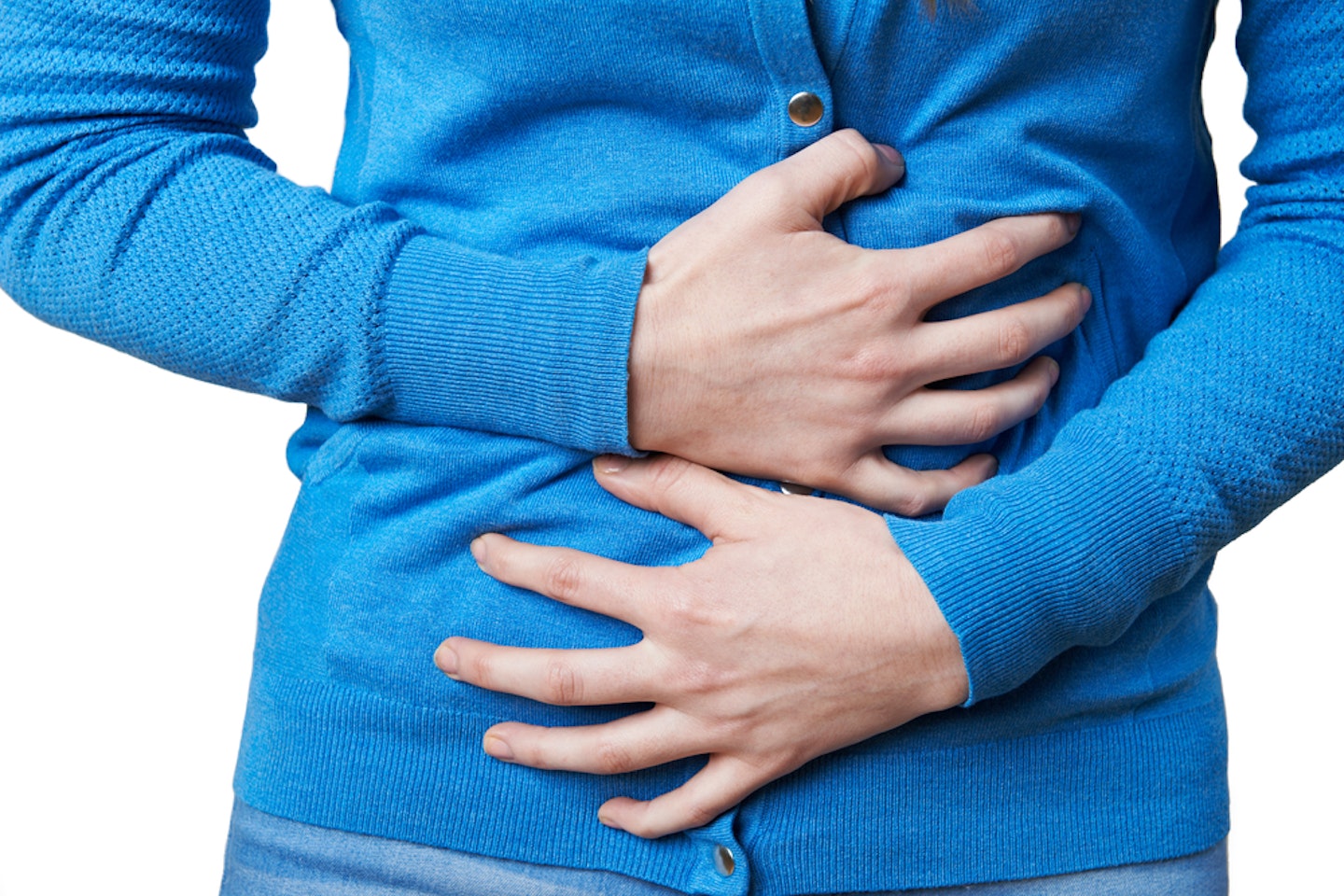Stomach bugs and bad tummies are part and parcel of winter - and this year is no exception. If you have sickness and diarrhoea make sure to stay home, take care of your body and avoid contact with others.
But fear not, there are ways to lower your risk of catching a stomach bug! Here is everything you need to know about stomach bugs, from how to tell if it is Covid-19 or a tummy bug and how to effectively fight it off.
What causes a stomach bug and how do you catch it?
In the UK, the two most common causes of a bout of vomiting and diarrhoea are:
- The ‘winter vomiting bug’ (norovirus), is the most common stomach bug in the UK and despite its name is around all year. You can catch it easily, through contact with an infected person, or food/drink and surfaces or objects they have contaminated. Between 600,000 and one million people in the UK catch norovirus every year.
- Food poisoning, most often caused by salmonella or campylobacter bacteria. Not cooking food thoroughly, or food being prepared by someone who is ill or has dirty hands can cause this kind of stomach bug.
How do you know if it’s norovirus or a tummy bug?
The incubation period for norovirus is anything from 24 hours to three days. Symptoms usually last 12-60 hours. It comes on suddenly, often with nausea and vomiting.
More than 50 per cent of people get abdominal cramps, a third have headaches, muscle pain, a temperature and loss of appetite. Diarrhoea is usually mild and watery.
How do you know if it’s food poisoning?
Symptoms such as nausea, vomiting, diarrhoea and stomach cramps usually begin 1-3 days after eating contaminated food. Vomiting can sometimes come on much faster.
Common culprits are raw meat and poultry, raw eggs, raw shellfish, unpasteurised milk and 'ready to eat' foods, such as cooked sliced meats, pâté, soft cheeses and pre-packed sandwiches

How to tell if it is a stomach bug, Covid-19, or the flu
Some symptoms of stomach bugs may include fever, cough, and gastrointestinal issues like nausea, vomiting, and diarrhoea but these can also be symptoms of Covid-19.
Researchshows that around 5-10% of adults with Covid-19 report GI symptoms such as nausea, vomiting, or diarrhoea. Typically, these patients who have GI symptoms of Covid-19 will also have the more common upper respiratory symptoms that come with Covid-19, such as a dry cough or difficulty breathing.
However, it is possible that the gastrointestinal issues come first, and the respiratory symptoms will follow a day or so after. If you develop these respiratory symptoms, call your GP and ask to be tested for Covid-19.
Seasonal flu and Covid-19 have some related symptoms too, such as fever, body aches and a cough. If you have these symptoms, you should call your GP to ask about Covid-19 and Flu testing. Remember to isolate yourself if you have any symptoms and avoid any public places and contact with others before receiving the results.
For a clear comparison, refer to this chart to compare symptoms of a stomach bug, Covid-19, flu, or serious GI condition. It is always a good idea to contact your doctor to discuss any symptoms you are experiencing.

Are you more susceptible to tummy bugs at 50+?
Stomach bugs affect people of all ages. Most people recover within two or three days, but remain infectious for 48 hours, even 72 hours after symptoms stop. But older people may be more likely to be affected by dehydration, which can need urgent medical attention if left untreated.
Symptoms of dehydration include
-
headache
-
dizziness or light headedness
-
tiredness
-
dry mouth, lips and eyes
-
dark, concentrated urine
-
passing small amounts of urine fewer than three or four times a day
Can I take antibiotics for a tummy bug?
Most people with norovirus or food poisoning don’t need medical treatment. Antibiotics have no effect on viruses. If food poisoning symptoms last for more than a few days, see your GP - if infection is bacterial, antibiotics might then help. In the meantime...
If you’re struck down with a stomach bug how can you get better faster?
Drink plenty of water to avoid dehydration. As a rough guide, drink at least a cup of fluids after each bout of diarrhoea. If you vomit, wait 5-10 minutes and then sip water every 2-3 minutes. You will need to drink even more if you are dehydrated. Stick to mainly water – sugary drinks can make diarrhoea worse.
Take paracetamol for any fever or aches and pains.
Eat when you feel up to it - small, but regular, portions of light foods such as rice, bananas, toast and crackers.
Avoid alcohol, cigarettes, caffeine and spicy and fatty food

Is there anything over the counter that could help a tummy bug?
Your pharmacy will sell a rehydration solution to combat dehydration symptoms. It’s recommended in people over 60, or with underlying health problems. Your pharmacist could also advise you about whether diarrhoea treatments, anti-nausea pills such as ginger, or the latestantiviral hand gelsmight be useful in your case.
How do you cut your risk of getting a tummy bug - or stop it spreading?
With norovirus, stay at home while you’re infectious - that means until you have been free of symptoms for at least 48 hours.
Wash your hands frequently and thoroughly with soap and water or antibacterial handwash – especially after going to the toilet or before preparing food.
Clean the toilet after each bout of vomiting or diarrhoea, including the seat and flush handle
Clean taps, door handles and surfaces an infected person has touched, daily.
Avoid preparing food for others if you are infected.
Do not share towels , flannels, cutlery or utensils with others in the household
Wash soiled clothing on a hot cycle.
For more on preventing food poisoning, see the tips here
When should you get medical help for sickness and diarrhoea?
Contact your GP if:
-
you've been vomiting repeatedly for more than a day or two, or your symptoms last longer than a few days
-
you're unable to keep down any fluids because you are vomiting repeatedly
-
your vomit is green (this could be bile, and suggest you may have a blockage in your bowel)
-
you have signs of severe dehydration, such as confusion, a rapid heartbeat, sunken eyes and passing little or no urine
-
you've lost a lot of weight since you became ill
-
you experience episodes of vomiting frequently
-
you have diabetes and have been vomiting persistently (particularly if you take insulin), as it can affect blood sugar levels.
